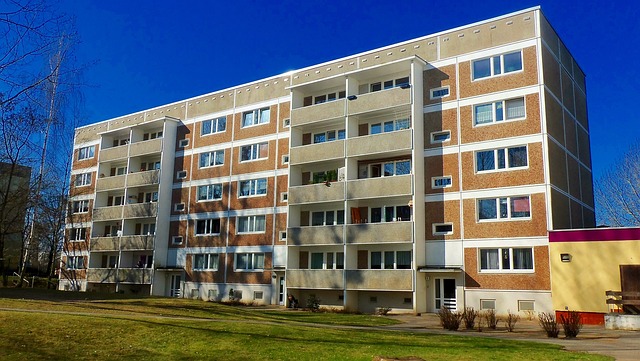Table of Contents
Introduction:
Investing in apartment buildings can be a lucrative venture, but it also comes with its own set of pros and cons. In this comprehensive guide, we’ll explore the advantages and disadvantages of investing in apartment buildings and help you decide if it’s the right investment for you.
Why Invest in Apartment Buildings?
Investing in apartment buildings can provide a steady stream of passive income. When you purchase an apartment building, you have the potential to earn rental income from multiple units. This means that even if one unit is vacant, you still have income coming in from other units. Additionally, apartment buildings tend to appreciate in value over time, which can lead to significant returns on your investment.

Pros of Investing in Apartment Buildings
-
Steady Income Stream
As mentioned earlier, investing in apartment buildings can provide a steady stream of passive income. This can be especially beneficial if you’re looking for a reliable source of income in retirement.
-
Diversification
Investing in apartment buildings can be a good way to diversify your investment portfolio. It provides a tangible asset that can help to balance out the risks associated with other types of investments, such as stocks and bonds.
-
Appreciation
Apartment buildings tend to appreciate in value over time, which can lead to significant returns on your investment. Additionally, you can increase the value of your property by making improvements or renovations, which can result in higher rental income and a higher sale price down the line.
-
Tax Benefits Investing
In apartment buildings can come with a variety of tax benefits, including deductions for mortgage interest, property taxes, and repairs and maintenance. Additionally, you may be able to defer taxes on your rental income by using a 1031 exchange.
Cons of Active Investing in Apartment Buildings
-
Management
Managing an apartment building can be time-consuming and challenging. You may need to deal with tenant complaints, repairs and maintenance, and other issues that arise on a regular basis. -
Tenant Turnover
Tenant turnover can be costly for apartment building owners. When a tenant moves out, you may need to spend time and money finding a new tenant and preparing the unit for occupancy. -
Market Volatility
The real estate market can be volatile, and apartment buildings are not immune to fluctuations in the market. If the market takes a downturn, you may have trouble finding tenants or selling your property for a good price.
-
Upfront Costs
Investing in an apartment building can require a significant amount of upfront capital. You may need to take out a large mortgage or put down a substantial down payment, which can be challenging for some investors.
FAQs
Q: How do I finance the purchase of an apartment building?
A: There are several financing options available for apartment building investors, including traditional mortgages, commercial loans, and private financing.
Q: How do I find a good apartment building to invest in?
A: Finding a good apartment building to invest in requires research and due diligence. Look for properties in up-and-coming areas with high demand for rental units.
Q: How much can I expect to make from investing in an apartment building?
A: The amount you can expect to make from investing in an apartment building depends on several factors, including the location, size, and condition of the property.
Q: What should I look for when evaluating an apartment building?
A: When evaluating an apartment building, look for factors such as location, condition of the property, rental income potential, and vacancy rates.
Conclusion:
In conclusion, investing in apartment buildings can be a rewarding but challenging endeavor. While there are many potential benefits to owning rental property, there are also significant risks and challenges that must be carefully considered.
By conducting thorough due diligence and working with experienced professionals, however, it is possible to build a successful real estate portfolio and generate strong returns over time.

